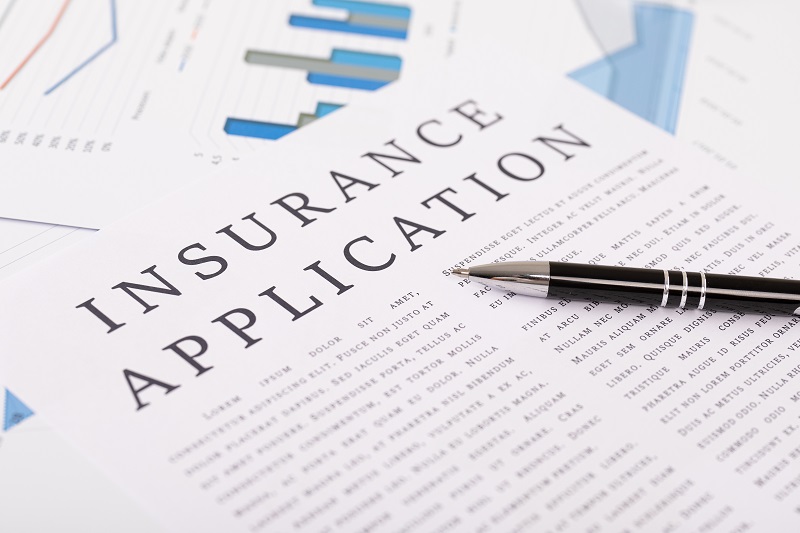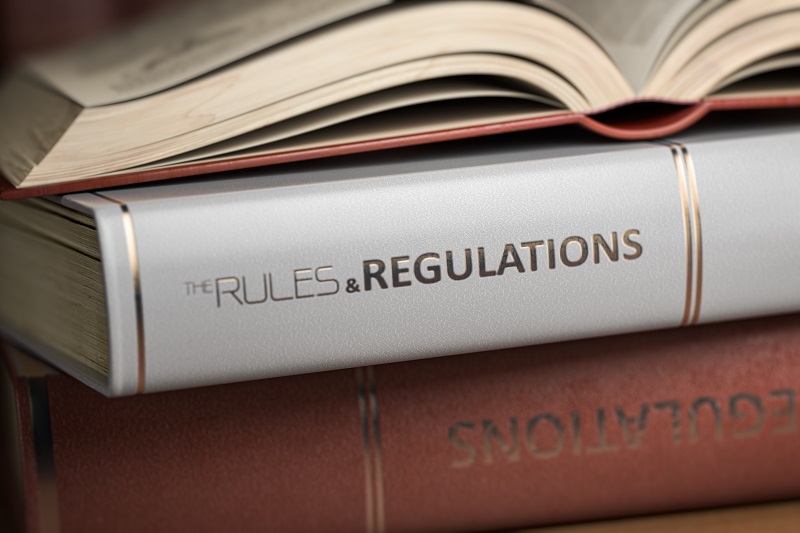Starting a credit repair business in Colorado can be an excellent opportunity for entrepreneurs, but it’s essential to understand the laws and regulations that govern this industry. In this article, we’ll explore the legal requirements you need to know before launching your credit repair business.
Choose a Business Structure

Determine whether you want to operate as a sole proprietorship, partnership, limited liability company (LLC), or corporation. Each structure has its advantages and disadvantages, so consult with a legal or tax professional to help you decide.
Sole Proprietorship:
This is the simplest business structure, where you, as the owner, are personally responsible for all aspects of the business. It does not require registration with the state, but you may need to obtain the necessary permits or licenses for operation. This structure does not offer liability protection for the owner.
Partnership:
In a partnership, two or more people share ownership and management of the business. Partnerships can be either general partnerships or limited partnerships. General partnerships have unlimited liability for all partners, while limited partnerships have limited liability for certain partners.
A partnership agreement is recommended to outline the roles and responsibilities of each partner.
Limited Liability Company (LLC):
An LLC is a hybrid business structure that combines the liability protection of a corporation with the flexibility and tax advantages of a partnership. In an LLC, the owners, known as members, have limited personal liability for the company’s debts and obligations. You will need to register an LLC with the Colorado Secretary of State by filing Articles of Organization.
Corporation:
A corporation is a separate legal entity from its owners, known as shareholders. It offers the strongest liability protection for its owners but has more complex management and reporting requirements. To form a corporation in Colorado, you will need to file Articles of Incorporation with the Secretary of State.
There are different types of corporations, such as C-corporations and S-corporations, which have different tax implications.
Register Your Business

If you choose to form an LLC or corporation, register with the Colorado Secretary of State. You may need to file Articles of Organization for an LLC or Articles of Incorporation for a corporation.
1. Choose A Business Structure
Determine the best business structure for your credit repair business, such as a sole proprietorship, partnership, limited liability company (LLC), or corporation.
2. Select A Business Name
Choose a unique and appropriate name for your credit repair business. If you’re operating as a sole proprietorship or general partnership using a name other than your legal name, you may need to file a trade name (DBA – “doing business as”) registration with the Colorado Secretary of State.
3. Register your business with the Colorado Secretary of State
If you choose to form an LLC or corporation, you’ll need to register with the Colorado Secretary of State. For an LLC, file Articles of Organization, and for a corporation, file Articles of Incorporation. You can file these documents online or by mail.
Online Filing:
Visit the Colorado Secretary of State’s website , navigate to the “Business” section, and follow the instructions for filing.
By mail:
Download and complete the appropriate forms from the Colorado Secretary of State’s website and mail them to the specified address with the required filing fee.
4. Obtain an EIN (Employer Identification Number)
Apply for an EIN from the Internal Revenue Service (IRS). This number is used for tax purposes and is required for most businesses. You can apply for an EIN online at the IRS website.
5. Register For State and Local Taxes
Depending on your business activities, you may need to register for various state and local taxes, such as sales tax, withholding tax, and unemployment insurance tax. Visit the Colorado Department of Revenue’s website to determine which taxes apply to your business and register as needed.
6. Obtain Necessary Permits and Licenses
Check with the Colorado Department of Regulatory Agencies (DORA) and your local city or county government for any required permits or licenses.
- Local Business License: Check with your local city or county government office to find out if a general business license is required to operate a credit repair business in your area. The requirements and fees may vary depending on the location.
- Sales Tax License: If you will be selling goods or providing taxable services in Colorado, you may need to obtain a sales tax license from the Colorado Department of Revenue. Visit the department’s website to apply for a sales tax license.
- Home-based Business Permit: If you plan to operate your credit repair business from your home, you may need a home occupation permit. Check with your local city or county zoning department for any applicable regulations and requirements.
- Professional and Occupational Licenses: While credit repair businesses are not specifically regulated in Colorado, other professional services you provide may require a license. Visit the Colorado Department of Regulatory Agencies (DORA) website to check if any of your services require a specific professional or occupational license.
To obtain the necessary permits and licenses:
- Contact the appropriate local government office (city or county) for information on local business licenses or permits. They will provide you with the necessary forms, fees, and instructions.
- Visit the Colorado Department of Revenue’s website to apply for a sales tax license if applicable.
- Check with your local zoning department for home occupation permit requirements if you plan to operate your business from home.
- Consult the Colorado Department of Regulatory Agencies (DORA) to determine if any professional or occupational licenses are required for your specific services.
7. Register with the Colorado Department of Labor and Employment (CDLE):
If you have employees, you may need to register with the CDLE for unemployment insurance and workers’ compensation coverage. Visit the CDLE website for more information.
Bond Requirement:

Colorado does not specifically require a surety bond for credit repair businesses. However, some states do require a bond, and it is considered good practice to obtain one. A surety bond can help protect your clients and your business.
Research State Regulations:
Since bonding requirements can vary from state to state, research the regulations in the state where you plan to operate your credit repair business. You can check with the state’s Department of Regulatory Agencies, Attorney General’s Office, or Secretary of State’s Office for information on any bond requirements that may apply to credit repair businesses.
Check Local Requirements:
Bonding requirements can also be imposed at the city or county level. Check with your local government offices to see if they have any specific bonding requirements for credit repair businesses.
Consult Industry Associations:
Joining industry associations, like the National Association of Credit Services Organizations (NACSO), can provide valuable resources and information on best practices, including bonding.
Determine The Bond Amount:
If you find that a surety bond is required, you’ll need to determine the bond amount, which is usually based on a percentage of your annual revenue or a fixed amount set by the state or local government.
Find A Surety Bond Company:
To obtain a surety bond, you’ll need to work with a licensed surety bond company or agent. Look for a company with experience in issuing bonds for credit repair businesses or similar industries. You can search for licensed surety companies through the National Association of Surety Bond Producers (NASBP) or the Surety & Fidelity Association of America (SFAA).
Apply For the Bond:
Complete the application process with the surety bond company. This may include providing financial statements, credit history, and other relevant information about your business. The surety company will then evaluate your application and determine the premium you’ll need to pay for the bond.
Purchase The Bond:
If approved, you’ll need to pay the premium and obtain the bond. The surety company will issue a bond certificate, which serves as proof of your bond coverage.
Comply with Filing Requirements:
If required, submit the bond certificate to the appropriate state or local agency to demonstrate your compliance with bonding requirements.
Understand And Comply with The Credit Repair Organizations Act (CROA):

The CROA is a federal law that governs the credit repair industry. It prohibits certain practices and requires specific disclosures. Familiarize yourself with the CROA and ensure your business complies with its provisions.
Develop A Written Contract

Create a written contract for your clients that outlines the terms of your services, fees, and any guarantees. Ensure that the contract complies with the CROA and Colorado state law.
Identification Of the Parties:
Clearly identify your business (including the legal name and contact information) and the client (including their full name and contact information).
Description Of Services:
Provide a detailed description of the credit repair services you will provide, including any specific actions you will take, such as disputing inaccuracies or negotiating with creditors.
Duration Of the Agreement:
Specify the duration of the contract, including the start date and end date or any conditions under which the contract will be terminated.
Cancellation Policy:
Include a cancellation policy that allows your clients to cancel the contract within a specific time frame, typically three days, without incurring any penalties, as required by the CROA.
Disclosures:
Ensure that you include any required disclosures, such as the client’s right to dispute inaccurate information on their credit report without the help of a credit repair company, as outlined by the CROA.
Client Responsibilities:
Detail the client’s responsibilities, such as providing accurate and timely information, cooperating with the credit repair process, and promptly notifying your company of any changes in their personal information or credit situation.
Warranties And Guarantees:
Clearly state any warranties or guarantees you offer, and make sure they comply with the CROA, which prohibits credit repair companies from making false or misleading claims about their services.
Governing Law and Dispute Resolution:
Specify the governing law (usually the law of Colorado) and any preferred method of dispute resolution, such as mediation or arbitration.
Signatures:
Provide spaces for both parties to sign and date the contract, indicating their agreement to the terms and conditions outlined in the document.
Establish A Business Bank Account

Separate your personal and business finances by opening a business bank account. This will help you stay organized and maintain accurate financial records.
Choose A Bank or Credit Union:
Research and compare various banks and credit unions in Colorado, considering factors such as fees, account features, and accessibility. Choose an institution that best meets your business’s needs.
Determine the Type of Account:
Most banks and credit unions offer different types of business accounts, such as checking accounts, savings accounts, and certificates of deposit. Determine which type of account(s) best suits your credit repair business’s financial needs.
Gather Required Documentation:
Before opening a business bank account, you’ll need to provide certain documentation, which may include:
- Business formation documents (Articles of Organization for an LLC or Articles of Incorporation for a corporation)
- EIN (Employer Identification Number) confirmation letter from the IRS
- Business trade name (DBA) registration, if applicable
- Business licenses or permits, if required
- A partnership agreement, if applicable
- Operating Agreement (for an LLC) or corporate bylaws (for a corporation), if applicable
- Personal identification, such as a driver’s license or passport, for each account signer or an authorized representative
Visit The Bank or Credit Union:
Once you have gathered the necessary documentation, visit the chosen bank or credit union in person to open your business bank account. Some institutions may also offer online account openings, but requirements and procedures can vary.
Complete the Account Application:
Fill out the required application forms and provide the necessary documentation. A bank representative will guide you through the process, answer any questions, and inform you of any account-related fees or terms.
Deposit Initial Funds:
Many business bank accounts require an initial deposit to open the account. Be prepared to deposit the required amount when opening your account.
Set Up Online Banking and Other Services:
After your account is open, set up online banking, order checks, and explore any additional services that may benefit your credit repairs business, such as credit cards, merchant services, or payroll services.
Obtain Business Insurance

Consider obtaining general liability insurance to protect your business from potential lawsuits or claims.
General Liability Insurance:
This type of insurance provides coverage for bodily injury, property damage, and personal injury claims that may arise from your business operations.
Professional Liability Insurance (Errors and Omissions Insurance):
This policy covers claims related to errors, omissions, or negligence in the provision of professional services, such as credit repair. It can protect your business from potential lawsuits and financial losses resulting from mistakes or unsatisfactory services.
Commercial Property Insurance:
This insurance covers your business property, such as office equipment, furniture, and inventory, against damage or loss due to fire, theft, or other disasters.
Cyber Liability Insurance:
As a credit repair business, you handle sensitive client information. Cyber liability insurance can protect your business from financial losses related to data breaches, hacking, or other cyber threats.
Workers' Compensation Insurance:
If you have employees, you may be required to carry workers’ compensation insurance, which provides benefits to employees who are injured or become ill due to their job.
Business Interruption Insurance:
This policy covers lost income and additional expenses that may occur if your business is temporarily unable to operate due to a covered event, such as a natural disaster or fire.
To obtain business insurance for your credit repair business in Colorado:
- Assess Your Risks: Evaluate the potential risks and liabilities your business may face to determine which types of insurance are necessary and the appropriate coverage limits.
- Research Insurance Providers: Compare various insurance companies and agents that offer business insurance policies in Colorado. Look for providers with experience in your industry and a solid reputation for customer service and claim handling.
- Request Quotes: Contact multiple insurance providers to request quotes for the types and amounts of coverage you need. Be prepared to provide detailed information about your business, including the size, location, number of employees, and services offered.
- Compare Policies and Premiums: Review the quotes, coverage options, and premiums to determine which policy best meets your needs and budget.
- Purchase Insurance: Once you have chosen a policy, work with the insurance agent or company to complete the application process and purchase your coverage.
- Review Your Coverage Regularly: As your business grows or changes, review your insurance coverage annually or whenever significant changes occur to ensure it remains adequate for your needs.
Local and State Regulations

In addition to federal laws, be aware of any local or state regulations that may apply to your credit repair business in Colorado, such as licensing or registration requirements.
Colorado Consumer Protection Act (CCPA):
The CCPA prohibits deceptive trade practices in the conduct of any business or occupation. Credit repair businesses must avoid false or misleading advertising, deceptive guarantees, or any other misleading business practices.
Colorado Fair Debt Collection Practices Act (CFDCPA):
While this act primarily regulates debt collectors, it’s important to be aware of its provisions and avoid any marketing practices that could be considered deceptive or harassing. As a credit repair business, you should be transparent and honest in your communications with clients and potential clients.
Business Registration:
As with any business operating in Colorado, you will need to register your credit repair business with the Colorado Secretary of State. This may involve forming an LLC, corporation, or other business structure, as well as registering a trade name (DBA) if you plan to operate under a name different from your legal business name.
Local Regulations:
Depending on your location within Colorado, your credit repair business may be subject to additional local regulations, such as zoning ordinances, business licensing requirements, or permits. Check with your city or county government offices to determine the specific local regulations that may apply to your business.
Tax Compliance:
Ensure that your credit repair business is compliant with federal, state, and local tax requirements, including registering for an Employer Identification Number (EIN) with the IRS, and registering for Colorado sales tax and employer withholding tax, if applicable.
Privacy and Data Protection:
As a credit repair business, you handle sensitive client information. You must comply with federal and state privacy laws, such as the Fair Credit Reporting Act (FCRA) and the Colorado Consumer Data Privacy Act. Implement proper security measures to protect your clients’ personal information and maintain their privacy.
Business Insurance:
While not a regulation, obtaining appropriate business insurance, such as general liability and professional liability insurance, is a best practice to protect your credit repair business from potential financial losses and liabilities.
Ready to start your credit repair business in Colorado?
Make sure you are informed and compliant with the latest state laws.
Click now to learn more.
In closing, starting a credit repair business in Colorado requires a deep understanding of the state’s laws and regulations. With dedication and hard work, you can build a successful business that helps people achieve their financial goals.
Bonus: Now that you have read this article, why not take your new skill and start your own credit business helping others? We have free training that can help you do just that.

